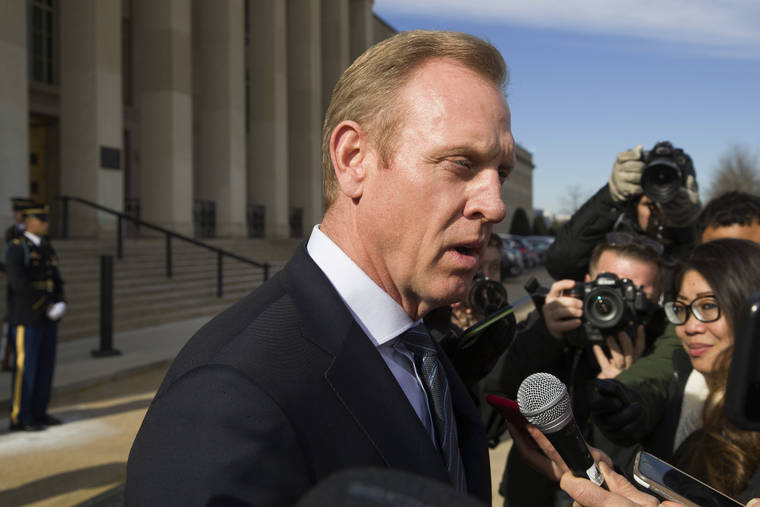WASHINGTON — President Donald Trump on Thursday said he will nominate Patrick Shanahan to be his second secretary of defense. Shanahan, a former Boeing executive, has been leading the Pentagon as acting secretary since Jan. 1, a highly unusual arrangement for arguably the most sensitive Cabinet position.
“Acting Secretary Shanahan has proven over the last several months that he is beyond qualified to lead the Department of Defense, and he will continue to do an excellent job,” White House press secretary Sarah Sanders said in a statement.
Moments later, Shanahan issued a statement saying he is honored by the announcement and, if confirmed, “I will continue the aggressive implementation of our National Defense Strategy. I remain committed to modernizing the force so our remarkable Soldiers, Sailors, Airmen, and Marines have everything they need to keep our military lethal and our country safe.”
Shanahan wields none of the star power of Trump’s first defense secretary, Jim Mattis. And that may be just the thing for a commander in chief who seemed to resent Mattis for his reputation in Washington as a superior strategist and a moderating influence on an impulsive president.
Two months before Mattis resigned, citing policy differences, Trump publicly questioned whether he was “sort of a Democrat.” After the former Marine general quit, Trump spoke more harshly, calling Mattis a failure and insisted he had fired him, even though Mattis had resigned first.
Shanahan, 56, has a lifetime of experience in the defense industry but little in government. In more than three months as the acting secretary, he has focused on implementing the national defense strategy that was developed during Mattis’ tenure and emphasizes a shift from the resources and tactics required to fight small wars against extremist groups to what Shanahan calls “great power” competition with China and Russia.
The Shanahan nomination is not known to face any organized opposition in Congress, although some members have been lukewarm on him. Sen. James Inhofe, the Oklahoma Republican who is chairman of the Senate Armed Services Committee, has questioned why Trump was taking so long to seek the Senate’s consent but has indicated he would support Shanahan.
This is only the third time in history that the Pentagon has been led by an acting chief. The last was William H. Taft, who served for two months in 1989 after President George H.W. Bush’s first choice to be defense secretary, John Tower, became mired in controversy and ultimately failed to be confirmed by the Senate. Dick Cheney, the future vice president under President George W. Bush, then was nominated and confirmed.
Presidents typically take pains to ensure the Pentagon is being run by a Senate-confirmed official, given the grave responsibilities that include sending young Americans into battle, ensuring the military is ready for extreme emergencies like nuclear war and managing overseas alliances that are central to U.S. security.


